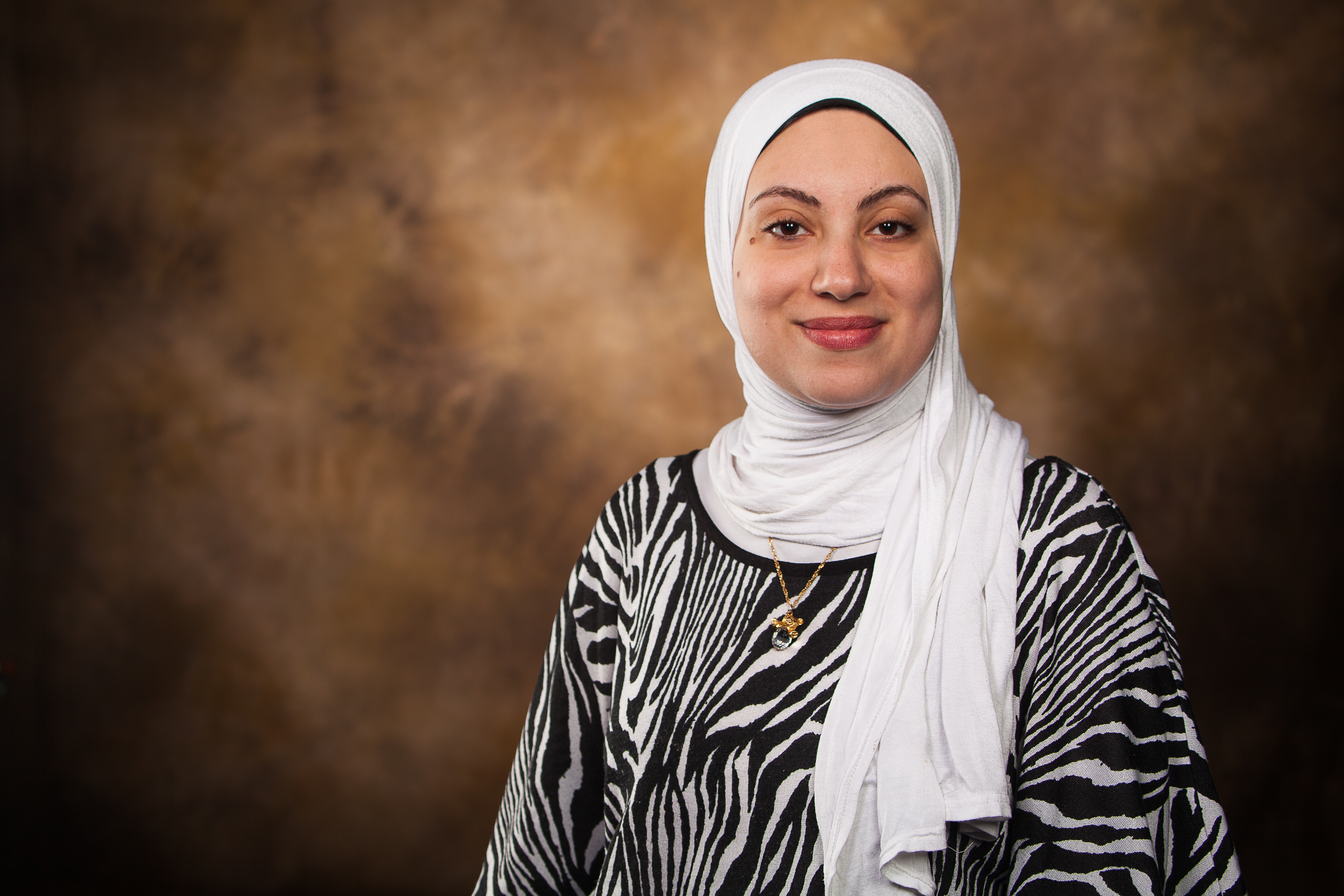FAYETTEVILLE, Ark. – What is in the soil on Mars?
When the Phoenix spacecraft landed on Mars in 2008 and began transmitting data about the planet’s surface back to Earth, scientists confirmed the presence of different ions in Mars’ soil, such as magnesium, sodium, potassium, sulfate, chloride — and a most unexpected one: perchlorate.
Although ions in the soil at the Phoenix landing site are well known, this is not the case for the composition of the parent salts in Mars’ regolith – a layer of unconsolidated rocky material covering bedrock. Amira Elsenousy, a doctoral candidate in the Arkansas Center for Space and Planetary Sciences at the University of Arkansas, is completing her dissertation on the composition and nature of salts in the soil at the Mars Phoenix site.
Elsenousy, whose research expertise is the chemistry of planetary bodies, is trying to understand the regolith-atmosphere interactions on Mars’ surface.
“I am investigating the stability of water on the surface of Mars and estimating the probable salts that might be present at Mars’ northern polar region through modeling the salt composition using geochemical modeling programs,” Elsenousy said.
Perchlorate salts are known to absorb water vapor from the atmosphere and form a liquid solution at low temperatures, as in the case on Mars. This discovery means that liquid water may be forming on the surface or even at the shallow subsurface of Mars.
“There are intermediate oxidation species between chloride and perchlorate, which are known to exist on Mars as hypochlorite and chlorite,” she said. “They may form stable salts on the surface of Mars. They could also react with organic materials and might be responsible for the nonexistence of organics on Mars’ surface.”
Elsenousy presented her findings, with her faculty mentor Vincent Chevrier, a research professor in the Arkansas Center for Space and Planetary Sciences, last year at the Present-Day Habitability of Mars Conference at the University of California at Los Angeles. She also presented her research in July at the Eighth International Conference on Mars at Pasadena, California, and in March at the 45th Lunar and Planetary Science Conference at The Woodlands, Texas.
Elsenousy returned to the U of A this semester after a summer-long internship at NASA’s prestigious Jet Propulsion Laboratory in Pasadena, where she studied the interface layer between the ice shell and the subsurface ocean on Europa, one of Jupiter’s moons.
“Europa is known to host a subsurface ocean and is perhaps the most promising candidate for extant life among the Galilean satellites.” Elsenousy said. “It was a neat opportunity to study something new and apply my understanding of Mars’ chemistry to a different planetary body.”
Melting of small parts of the top ice layer forms a thin layer of fresh water at the ice-water interface. Studying this layer of fresh water will give direct information about the chemistry and geology of Europa.
“The existence of liquid water on a planetary body gives clues for possible habitable environments that might sustain life and this will improve our understanding for habitability of icy worlds,” Elsenousy said. “My research of this area will support the future mission to Europa, called the Europa Clipper.”
An international student from Egypt, Elsenousy earned a bachelor’s degree in biological-chemistry from Cairo University. She entered the doctoral program in space and planetary sciences at the U of A in 2010.
Contacts
Amira Elsenousy, doctoral student
Arkansas Center for Space and Planetary Sciences
479-575-7625,
